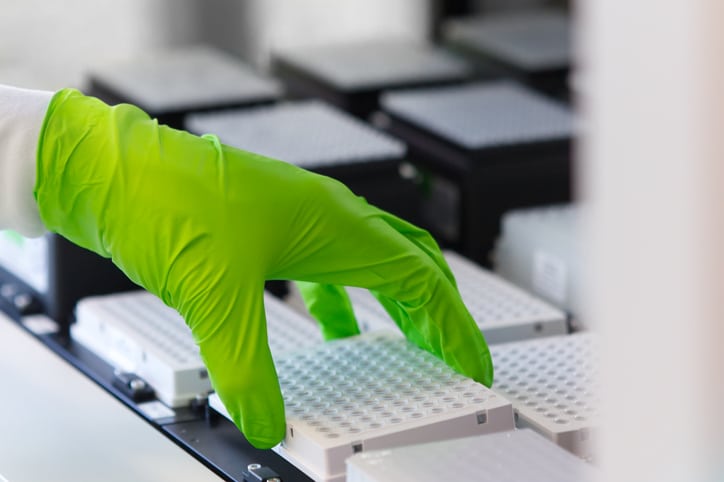
Within the field of Pharmaceutical Regulatory Affairs, professionals use their knowledge of industry legislation, manufacturing practices, quality standards and regulatory systems to assess the safety of pharmaceutical products which require approval for the market. While all of the products they’ll review are pharmaceuticals, some of these products will fall under the category of biopharmaceuticals.
Biopharmaceuticals are produced using biotechnology. With new technologies, more efficient processes and innovative biologies, these products have greater potential on the market than ever before.
If you’re considering a career in Pharmaceutical Regulatory Affairs, your future role may involve ensuring the safe and compliant development of biopharmaceuticals before they’re approved for market release. In the future, you’re likely to see an upward trend in the number of biopharmaceuticals seeking market approval. Below, discover a few reasons behind their spread!
What Are Biopharmaceuticals?
In the field of pharmaceutical regulatory affairs, a greater number of biopharmaceutical products are being assessed for market approval. Biopharmaceuticals, or drugs produced using biotechnology, include vaccines, therapies or medicinal drugs which are developed or manufactured using:
- Nuclear transfer
- Cell cultures
- Recombinant animals: including transgenic, chimeric etc
- Microorganisms
- Microinjection
Most biopharmaceutical products are produced using life forms, while some may be drugs derived from small molecules. In recent years, the number of biopharmaceutical products granted patents has increased greatly. With advancements in technology and greater scientific innovation, the potential for what can be achieved and treated with biopharmaceuticals has rapidly expanded.

Biopharmaceutical products require approval by pharmaceutical regulatory affairs professionals
COVID-19 Has Increased Vaccine Production
Since the arrival of the COVID-19 pandemic in late 2019, biopharmaceutical manufacturers have been working harder than ever to develop vaccines and other products to stop the spread of the virus. COVID-19 vaccinations were first tested in preclinical trials, where tissue systems, animal cells or human cells were used to analyze their effectiveness and side effects. Next, the vaccines moved to clinical trials with human participants, and after various rounds of study, could be considered by regulatory affairs professionals for approval.
With new coronavirus variants and increasing efforts to avoid new lockdowns and travel constraints, a higher level of priority is being put on approving biopharmaceutical products working to prevent COVID-19. As a regulatory affairs professional, you’ll be sure to examine products like these as efforts to work against the pandemic continue.

More vaccines are being approved to prevent the spread of COVID-19
Immunotherapies Are In-Demand
The evolution of immunotherapies is another development influencing the increase in biopharmaceutical products. Thanks to advancements in science, immunotherapies are increasing in effectiveness, and many have been shown to improve the prognosis of different types of cancers.
Many of these types of products are in the trial process today, with exciting developments to come. During your career in regulatory affairs, it’s likely that you’ll see improvements in our understanding of cancer patients’ genetic makeup leading to more innovative, effective immunotherapies for approval. However, given the complex manufacturing process, it will be difficult for these products to become highly accessible.

With more demand for immunotherapies, these products will increase in prevalence
Biosimilar Products Are Growing
Perhaps the development with the largest impact on the biopharmaceutical industry is that of the increase in biosimilars. Biosimilars are reduced-cost alternatives to expensive, monoclonal antibody treatments. With the proliferation of biosimilars, more of the general public will be able to access and afford life-saving treatments. Within the pharmaceutical regulatory affairs industry, the rise in biosimilars is expected to lead to:
- Improved capacity planning in manufacturing
- Expansion of more biopharmaceuticals into markets in developing countries
- The scaling of bioprocessing efficiency
As you continue to pursue a future in the pharmaceutical regulatory affairs industry, you’re likely to see these trends influencing the types of products that you’ll be reviewing for market approval.
Interested in a regulatory affairs program?
Explore your opportunities at AAPS today!



